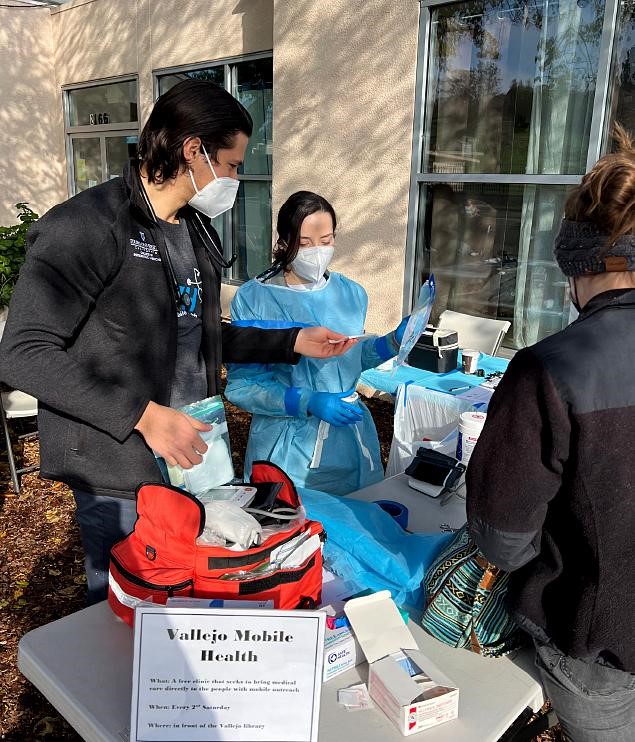Practicing Street Medicine
New 'Street Medicine' Elective Eyes Curbside Treatment

While Touro University California’s different healthcare programs might be divided into different specialties, the basic theme unifying all of them is the students’ general desire to help vulnerable populations.
A new elective being offered, called ‘Street Medicine’ opens the door for students to learn how to treat the most vulnerable of populations, those living in curbside communities, where access even to something as simple as a neighborhood free clinic is inhibiting.
Dr. Michele Bunker-Alberts has spearheaded the effort for this elective, which grew out of her previous experiences with curbside clinics in both Oakland and Vallejo, and more recent work with Project Roomkey.
The obstacles to care for unhoused populations are numerous, Dr. Bunker-Alberts explained.
“I knew this had to be part of the curriculum,” Dr. Bunker-Alberts said. “We can’t just treat people when they come to the clinic.” Often the best way to do that is to take the clinic to them.
The 1-unit elective will feature lectures and clinical hours at various sites, with a percentage of the instruction focused on how to interact with and understand the circumstances affecting people in these curbside communities.
What makes the elective unique for Touro is that it is available to any student enrolled in a health science program, meaning it’s possible and likely students from nursing, medicine, the PA program and pharmacy will all be working collaboratively in these clinical settings.
“These are student-centered courses and they’re sought after,” Dr. Bunker-Alberts said. More than a dozen students have already inquired about the class and there is some consideration to offering the course in a micro credential format, as well.
Along with learning how to work with this population, the students will also have a rare opportunity to work with students from other programs in a way they would in a professional setting.
For the residents of these curbside communities, the opportunity is there to get medical attention that might otherwise be lacking.
“It’s not just about helping to make people not be sick, but standing beside them to help ensure they achieve their goals for health,” Dr. Bunker-Alberts said. “That’s really the big goal.”
